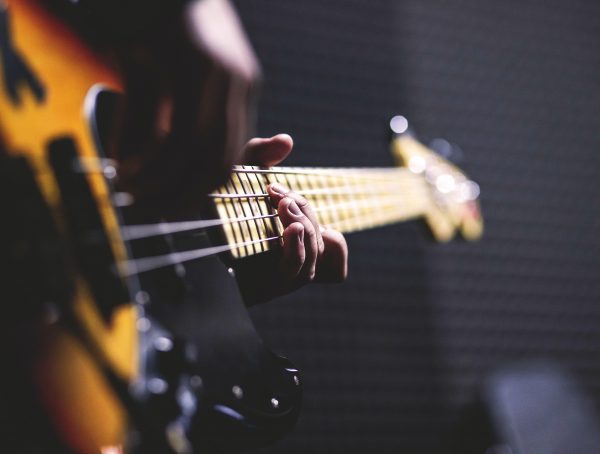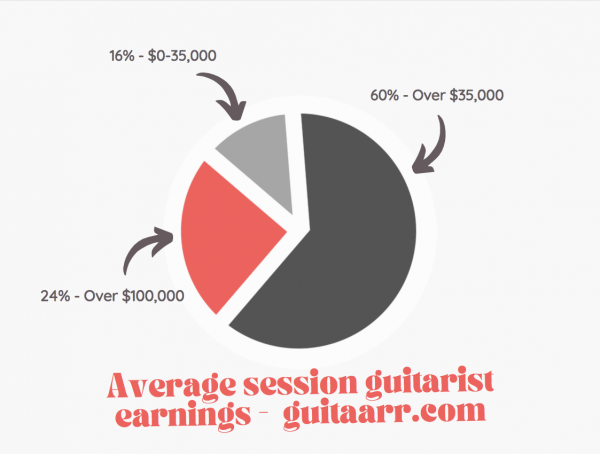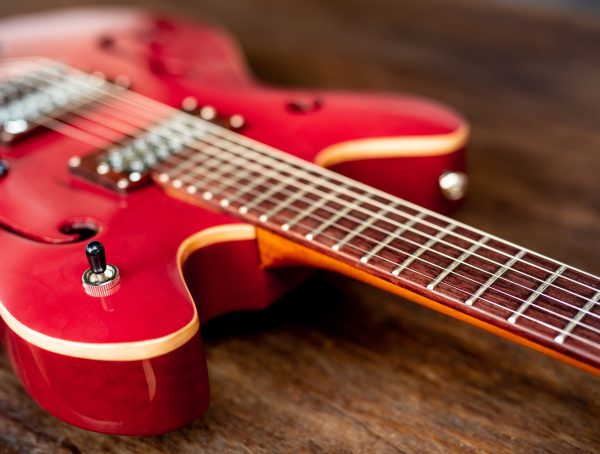So, you’re looking at buying a new electric guitar, and are clearly thinking about one of the classics. But how do you know which ones to choose? And, also, why are these guitars so popular in the first place?
Why choose a Gibson Les Paul?
You would be right in thinking that, even by looking at it, the Les Paul has more of a ‘heavier’ or a ‘denser’ tone than the Fender Strat. And this is one of the core appeals of this specific model. Commonly used in blues and rock music, the mainstay of the Les Paul and primary difference between itself and the Fender Strat lies with their setup, and more importantly the difference in tonality.
With a Les Paul, you’re getting two custom humbuckers as your standard pickup option. The humbucker is iconic in rock, grunge, metal, and everything slightly heavy, and it’s also an integral part of the Les Paul sound.
The difference here is that the response to frequencies that humbuckers provide. Without getting too technical, this essentially means that a guitar with a humbucker does indeed have a ‘beefier’ or a ‘thicker’ sound, especially compared to something like a Fender Strat. So, if you’re a rock rhythm guitarist or are looking to get an all-round thicker tone, then the Les Paul is more of a sound choice for you.
The Les Paul is also a much denser guitar than the Strat, and is generally more bulkier. Again, this is one of the reasons they are preferred by many rhythm guitarists as they simply feel much more ‘solid’.
Gibson Les Paul Common Highlights:
- Heavier guitar, heavy tone
- Dual humbuckers provide a rich, thick tone
- Suited for crushing lows as opposed to jangly high-ends
- Commonly a thick mahogany construct
Gibson Les Paul Video Demo
Why choose a Fender Stratocaster?
Fender Strat’s are, in my opinion, more versatile than a Les Paul when it comes to complete tonal ranges. By this I mean that their low-end may not match the crushing lows of the Les Paul humbuckers, but that there is a low-end to speak of (compared to the opposite in the lack of a high-end on Les Paul’s).
So, if you’re after both heavy rhythms and glassy, jangly tones from a high-end then a Stratocaster is certainly a better option for you.
The guitar is also commonly lighter, thinner, and generally not as dense as a Les Paul. If you’re more of a lead guitarist that is concerned with tonal range then a Fender Strat is certainly worth checking out.
Fender Stratocaster Common Highlights:
- Lightweight, especially compared to a Les Paul
- Less of a low-end, but overall more varied in terms of tonal ranges
- Suited for players who like to switch between clean and distorted, and especially those who want more than a humbucker offering when it comes to tone options
- Also has the Squire range to experiment with a cheaper model
Fender Stratocaster Video Demo
Why are these types of guitars so popular to begin with?
In all honesty, it really does have to come down to timing and marketing. In the 50s and 60s when rock exploded to the mainstream, guitarists were very commonly using either a Les Paul or a Strat, or at least a guitar from either Gibson or Fender.
So, you then get a generation of upcoming musicians looking to replicate the sound of their idols, and this carries on through to the present day. Naturally, the construct and tonalities of the brands have vastly improved over the years too, so you get a justification for popularity that only further drives the demand for these types of guitars.
Conclusion
Hopefully this post has helped you to see the right type of guitar, between the two, that is ideal for you. Maybe I’m biased but, I love them both!
If you liked this response to common questions we’re asked then head on over to our FAQ section to see if there are any other answers to burning guitar questions you may have.
More from Frequently Asked Questions
Can you play guitar with acrylic or long nails?
The short answer is yes, you can absolutely play the guitar if you have long nails, acrylic nails, fake nails... …
How Much Do Session Guitarists Earn? (2021 Poll Data)
There has been an argument for years now that the era of the session guitarist is long-gone. With nearly every …
How to protect your guitar from damage and theft
While your first guitar is unlikely to be worth more than a couple of hundred dollars, as you progress as …










